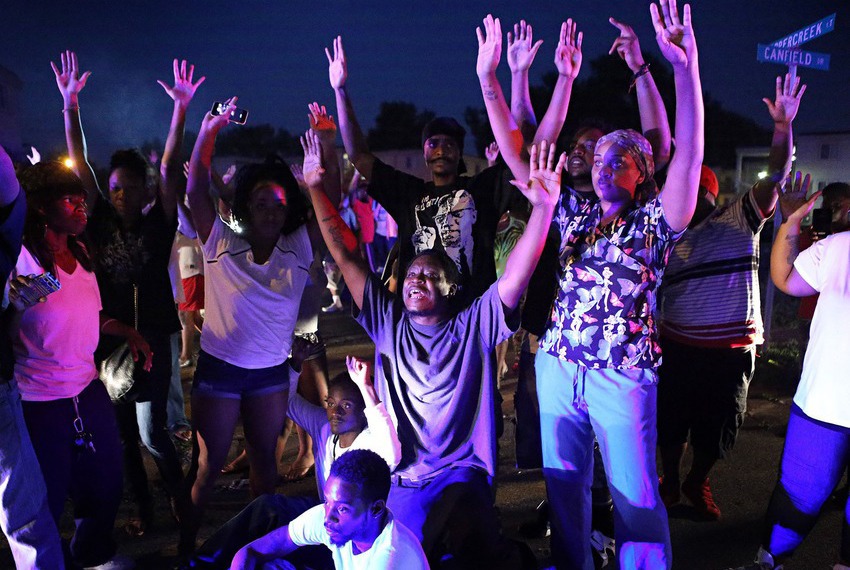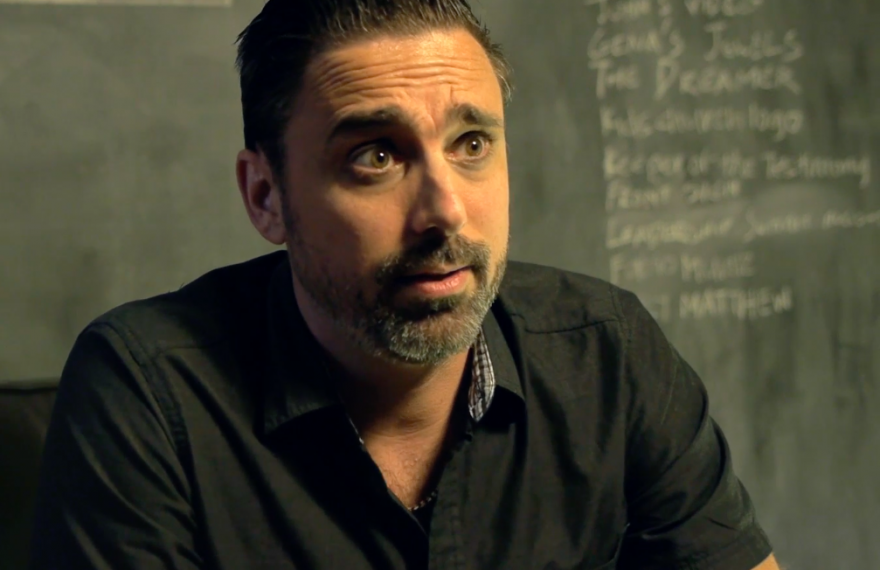There is an ever-growing need for prophetic leaders in the Greek System (fraternities & sororities) in America. As you know, I work with Greeks as my full time job, and this disgusting news has rocked me as well as many around the country.
Most of the time we think of Greek Ministry as evangelistic work, but now, after one more disgusting act, I am starting to see more clearly that Greek Ministry must become much more prophetic NOW – especially from white males.
If you have been living in a cave, here is the video of the SAE chapter at the University of Oklahoma singing a racist song.
[tentblogger-youtube ZRXn6Di7rqg]
There is also this video of a “House Mom” from the same fraternity saying very similar things.
Then there is this video of an interview of the last African American in the chapter and how it devastated him. He was in the chapter 14 years ago.
Greek Ministry as Evangelism
For most of us that work with Greeks, we are motivated by the evangelistic possibilities. We want to see people follow Jesus and we want to reach the brothers and sisters in these chapters that are far from God and morally destroying their lives. We are motivated to create ministries that fully contextualize to them and reach them right where they are.
I realize there are different kinds of Greek systems (Black, Latino, Asian, Multi-Culture) and each context has its own unique needs and challenges. My comments below are directed towards a white culture Greek System.
Most of our Greek staff are white and we find great joy in being people that relate very well to Greeks and that we know them, how they think, how they act, and what motivates them.
There is nothing wrong with this and in fact it is extremely missional and intentional.
This is the heart of the evangelist – to connect people far from God to Jesus. We are burdened by the fact that a people group is not being reached well and the reality on campus is that this is true – Greeks may rule the day when it comes to student government or power on campus, but most ministries overlook them.
As evangelists and an evangelistic ministry, we want to focus on them and reach them.
We Need Prophets
But it is becoming ever increasingly clear that we need not just evangelists, but prophets to rise up. I would contend especially white Greek prophets to emerge.
In the same way that we take pride in relating to the students, and being like them so we can reach them, we have to also think about how we are going to raise up some of these same people to be prophetic in this season.
In a short hand way, one could say evangelists relate to the people, while prophets stand apart and call sin into judgment.
It can be fun to be an evangelist; it is never fun to be a prophet.
Greek Ministry needs more prophets and we need them now – people who, being in the image of Greek students, will purpose to reach them not just by being like them or liked by them, but by standing apart and calling out sin and injustice.
There is a humongous prophetic hole in ministry to the Greeks.
We need leaders, and I would contend again that we need white male leaders, who are willing to be Greek ministry leaders and not base their calling on being liked and welcomed, but on speaking truth into the systemic injustices of racism that run ever so deeply inside this system.
Please do not hear me when I say we need “white male leaders” as saying we don’t need people of color or women – we do. But I am specifically calling out the white men to take a stand and be the prophets that God wants us to be.
After all, most of this crap is coming from white men in the Greek system.
We can’t let women alone carry the burden of defending themselves against sexism and assault, and similarly we can’t let people of color carry this burden of racism alone.
White men inside the Greek System and called to this ministry need to step up and be prophetic leaders.
It’s time we switch the hat – we have to take off the evangelism hat, put the prophetic one on, and spend some time thinking about what it means to be a prophet in this season and in this system.
What Can A White Guy Do?
Obviously this puts pressure on me to take this seriously and let God lead me and transform me into the kind of leader he wants me to be – I am a white male and I work with Greeks.
This can lead to many types of feelings
- Pressure
- Shame
- Paralysis
- Guilt
- Hiding
- Apathy
- Defensiveness
In some ways I am feeling all these things, and I know other white leaders are too. But the time is now, if we haven’t been engaging before, to lean in, stay in the game, and learn how to engage best with God, the systemic injustice, the people we lead, and maybe most importantly ourselves.
My Conversation with Ram Sridharan
I have been in dialogue with many of my non-white colleagues the last few days. One in particular was with my South Asian friend Ram Sridharan. He is the Associate Divisional Director with InterVarsity in Great Lakes East.
We were texting back and forth for a while and I finally asked him, “What ‘stuff’ do you think white people need to be pressed in?
He responded with a list of ten things that I find really helpful, challenging and spot on!
Before I share, I realize we are all responding to the issues of racial injustice in different ways. If you are a person of color, you live in this every day. But for the white people reading this, some of us have never thought about it, others a little bit, and some of us are deeply saddened and cut to the heart.
Ram’s Top Ten
Ten things (not exhaustive) that I think white staff/ministers may need to be pressed on:
- Embrace the mental dissonance. This is an inevitable part of the journey of growth.
- Acknowledge your inner defensiveness and STAY in the conversation.
- Ask lots of questions (open-ended) before you speak, draw conclusions, and offer counter points.
- Be silent appropriately and listen to the pain of others. But don’t be silent forever. Say something even if it might be not the most perfect response. Interpret your silence for the community. Silence speaks volumes and may communicate defensiveness and lack of care if not interpreted. Being silent because you may say the wrong thing is not helpful.
- People may get mad at you for saying the wrong thing. Or just mad at you because you represent a people group! Deal with it! Stay in the conversation! Don’t pull away! It is a great moment to feel what the rest of us feel when we see someone of our ethnicity up front, or in the news. We feel our representation communally and this might be the first time you are being called out of your individualism to take responsibility for a community. Trust me, it’s a God moment!
- Jump into the messiness. Don’t expect you get a pass to get your toes wet or splash in the shallow end of the pool while the rest of us are treading water in the deep end. This race related pool only has a deep end. Get in!
- Remember that you have a place at God’s multi-ethnic table.
- Maybe you are an IV staff, part of a multi-ethnic movement, or have friends of color; this doesn’t exempt you from needing deeper conversion in this area – be willing to go deeper!
- You may feel a sense of shame, which when externalized blames others, when internalized paralyzes you. Find a place for the shame to go with God and don’t let it paralyze you or blame others.
- The students who sang those racist chants are your students if you are a campus minister. You can’t distance yourself from them as if they are a rare example. And remember, the black students are equally your students. You may not work with them daily, but they belong to YOU, because you are called first and foremost to the WHOLE CAMPUS. You haven’t finished your work until a witness of God has been established in every fraternity and sorority including each chapter of the Divine 9.
And that goes for all of us!
Being a prophetic leader means starting with ourselves and I am going to take these points and allow God to press me deeper in them.
Which of these points speak to you today?




 From the book Primal Fire, By Neil Cole with Dezi Baker, Ed Waken, Phil Helfer and Paul Kaak
From the book Primal Fire, By Neil Cole with Dezi Baker, Ed Waken, Phil Helfer and Paul Kaak

 This is a series of guest posts by Scott Bessenecker. He is the Associate Director of Mission for InterVarsity Christian Fellowship. Each year he helps to mobilize thousands of students to domestic and international mission. He is author of various books including his new release
This is a series of guest posts by Scott Bessenecker. He is the Associate Director of Mission for InterVarsity Christian Fellowship. Each year he helps to mobilize thousands of students to domestic and international mission. He is author of various books including his new release


